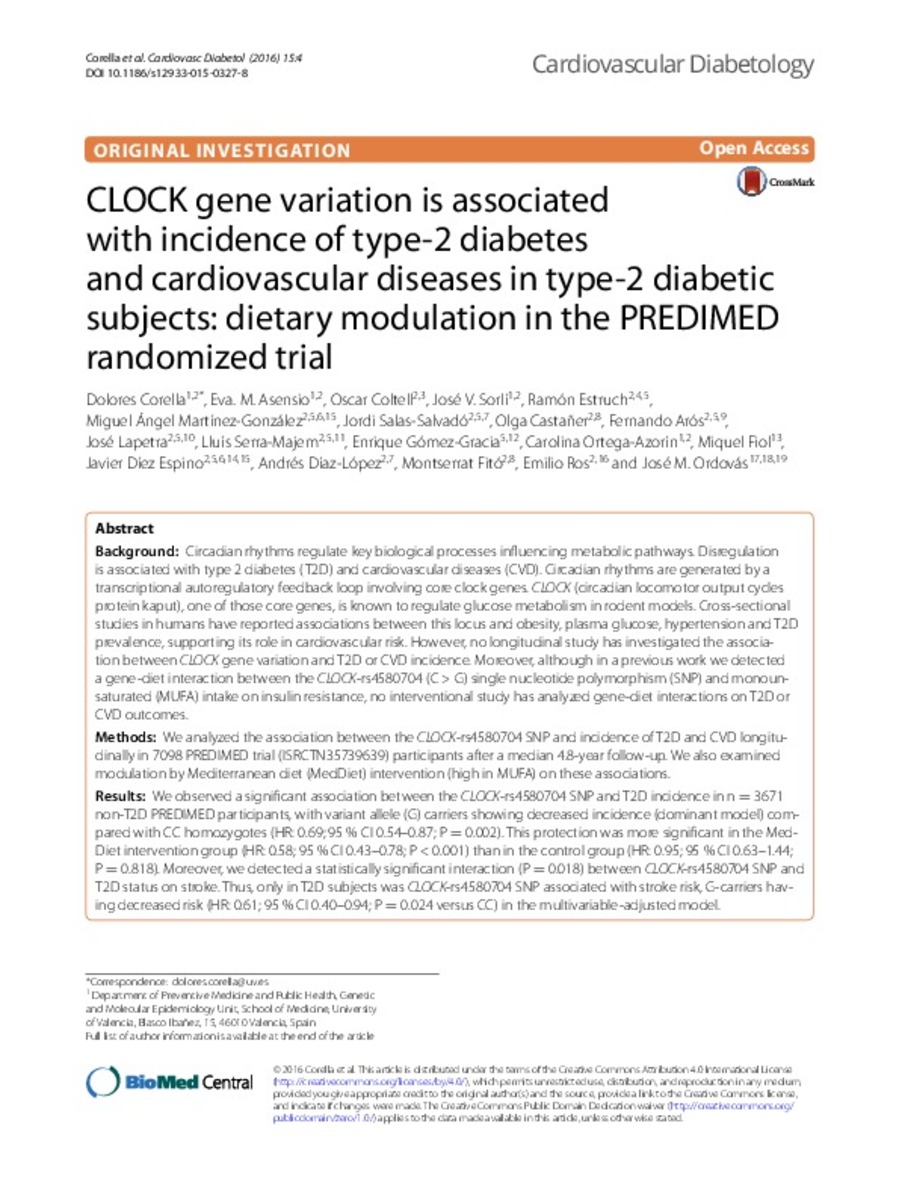CLOCK gene variation is associated with incidence of type‑2 diabetes and cardiovascular diseases in type‑2 diabetic subjects: dietary modulation in the PREDIMED randomized trial
Keywords:
CLOCK gene
Diabetes
Cardiovascular diseases
Mediterranean diet
Stroke
Materias Investigacion::Ciencias de la Salud::Medicina preventiva
Materias Investigacion::Ciencias de la Salud::Nutrición y dietética
Materias Investigacion::Ciencias de la Salud::Endocrinología
Publisher:
BioMed Central
Editorial note:
© 2016 Corella et al. This article is distributed under the terms of the Creative Commons Attribution 4.0 International License
Citation:
Corella D, Asensio EM, Coltell O, Sorli JV, Estruch R, Martinez-Gonzalez MA, et al. CLOCK gene variation is associated with incidence of type‑2 diabetes and cardiovascular diseases in type‑2 diabetic subjects: dietary modulation in the PREDIMED randomized trial. Cardiovasc Diabetol 2016;15(4):1-12.
Statistics and impact
0 citas en

0 citas en

Items in Dadun are protected by copyright, with all rights reserved, unless otherwise indicated.








